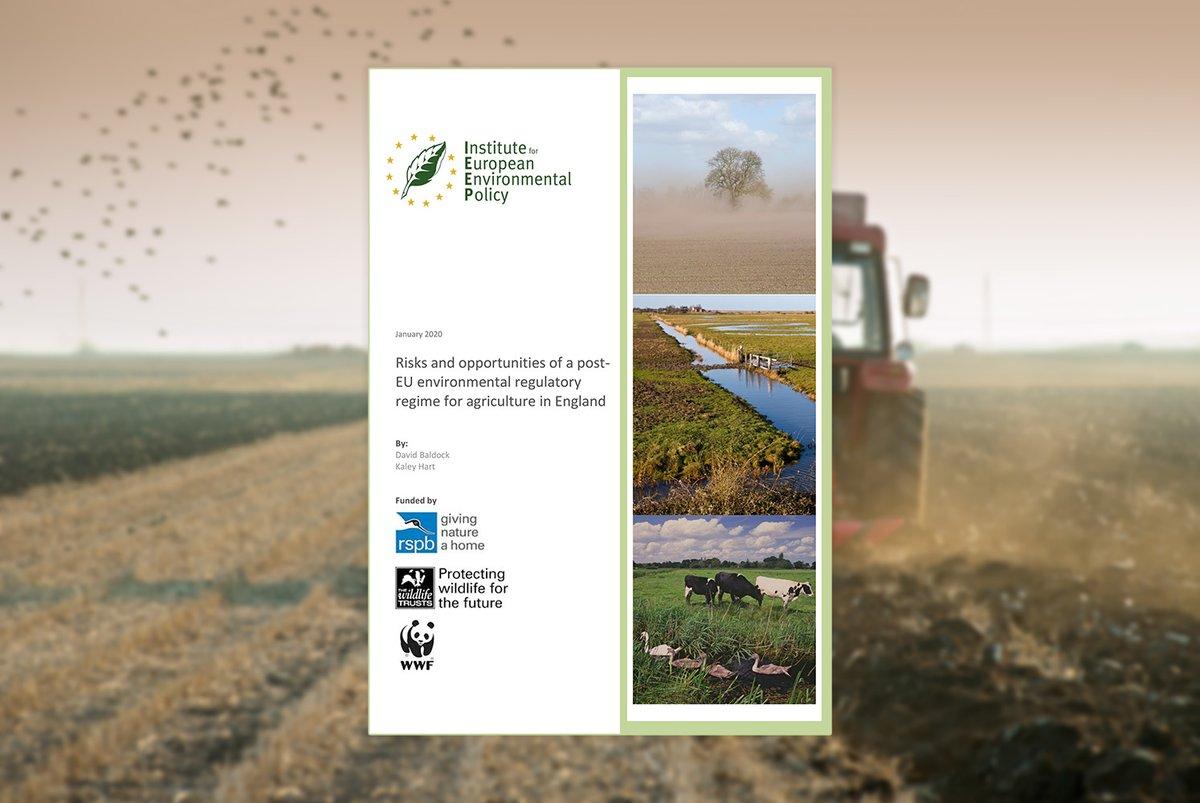AUTHORS: David Baldock – Kaley Hart
A fresh approach to the system of regulation for farmers and other land managers in England is required post EU-exit to maintain and improve environmental standards. A new delivery model should aim to build a more collaborative and long-term relationship with farmers, strengthen compliance and be adequately funded.
While leaving the EU presents many challenges for the UK, it also provides an opportunity to design a fresh approach to the system of environmental regulation as it affects land managers in England. A new system must fill the gaps in environmental standards that are left post-EU-exit, address the significant challenges facing biodiversity and climate as well as transform the delivery system into one that improves environmental compliance and engages farmers more deeply in the journey to sustainability.
This report, commissioned by The Wildlife Trusts, RSPB and WWF, is a contribution to the debate on the role of environmental standards and regulations and the way they will be applied on farms in England in the future. It summarises the rationale for having standards, the current state of play and the challenges facing the present system, before providing recommendations on what a future regulatory framework and delivery system might look like.
The report highlights that moving to a forward-looking post-EU environmental regime for agriculture in England involves two related but separate challenges. The first is to set up a new overarching framework of environmental regulation that meets the needs of the coming decades. The second is to deliver the relevant components of this framework on the ground, taking account of the special character of agriculture and farm businesses as appropriate.
There are immediate opportunities for adopting this approach by adding provisions to the Agriculture and Environment Bills before Parliament.
Some of the proposals outlined would entail relatively small adjustments, others more extensive change and a longer-term perspective. Key will be to move towards a more outcome focussed system, with an emphasis on improving rates of compliance on farms and engaging the agriculture sector more in attaining environmental goals. This, in turn, requires clearer environmental objectives to be set and a much stronger emphasis on dialogue and information sharing, between regulators as well as between regulators and land managers. To achieve this, a significant increase in resources for delivery is essential.

